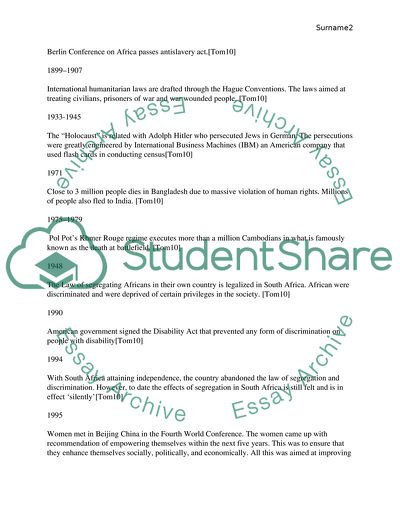Cite this document
(“The Law of Segregating Africans in Their Own Country Book Report/Review - 1”, n.d.)
The Law of Segregating Africans in Their Own Country Book Report/Review - 1. Retrieved from https://studentshare.org/history/1617516-human-rights-timelinesecond-part-subject-a-specific-name-by-yourself
The Law of Segregating Africans in Their Own Country Book Report/Review - 1. Retrieved from https://studentshare.org/history/1617516-human-rights-timelinesecond-part-subject-a-specific-name-by-yourself
(The Law of Segregating Africans in Their Own Country Book Report/Review - 1)
The Law of Segregating Africans in Their Own Country Book Report/Review - 1. https://studentshare.org/history/1617516-human-rights-timelinesecond-part-subject-a-specific-name-by-yourself.
The Law of Segregating Africans in Their Own Country Book Report/Review - 1. https://studentshare.org/history/1617516-human-rights-timelinesecond-part-subject-a-specific-name-by-yourself.
“The Law of Segregating Africans in Their Own Country Book Report/Review - 1”, n.d. https://studentshare.org/history/1617516-human-rights-timelinesecond-part-subject-a-specific-name-by-yourself.


